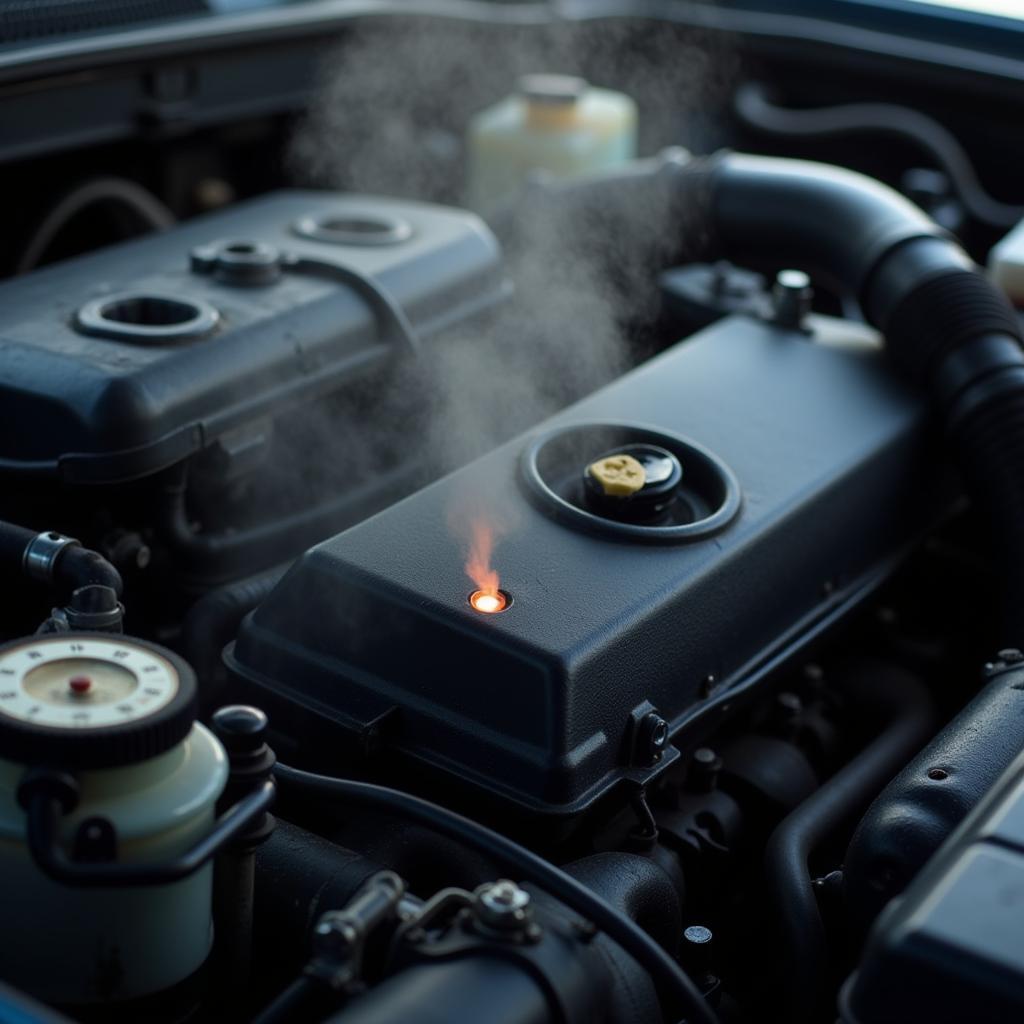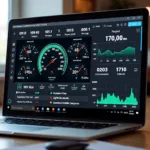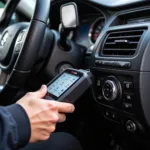A bad fuel filter can cause various performance issues in your vehicle, often triggering specific OBD2 codes. This article delves into the common OBD2 codes associated with a faulty fuel filter, the symptoms to look out for, and the steps to diagnose and fix the problem.
Understanding the Role of Your Fuel Filter
Before we dive into the OBD2 codes, let’s understand why the fuel filter is crucial for your car’s performance. The fuel filter acts as a gatekeeper between your gas tank and engine, ensuring a clean and consistent fuel supply. It traps contaminants like dirt, rust, and debris, preventing them from clogging injectors and damaging delicate engine components.
OBD2 Codes Indicating a Bad Fuel Filter
While there isn’t a specific OBD2 code directly pointing to a bad fuel filter, several codes indirectly suggest its failure. These codes usually indicate fuel delivery problems, which a clogged fuel filter can cause. Here are some common ones:
- P0171 (System Too Lean Bank 1): This code signifies that the engine is receiving less fuel than required, leading to a lean air-fuel mixture.
- P0174 (System Too Lean Bank 2): Similar to P0171, this code indicates a lean fuel mixture in bank 2 of the engine.
- P0101 (Mass Air Flow (MAF) Sensor Circuit Range/Performance Problem): A clogged fuel filter can disrupt airflow readings, triggering this code.
- P0191 (Fuel Rail Pressure Sensor Circuit Range/Performance): This code points to inconsistent fuel pressure, which a restricted fuel filter can cause.
Symptoms of a Bad Fuel Filter
Apart from triggering OBD2 codes, a failing fuel filter often manifests through noticeable symptoms:
- Engine Misfires: A clogged filter restricts fuel flow, leading to inconsistent combustion and engine misfires.
- Rough Idling: Your car might shake excessively while idling due to an uneven fuel supply.
- Difficulty Starting: If your car struggles to start, especially after sitting for a while, it could be due to a fuel-starved engine.
- Reduced Engine Power: You might experience a noticeable decrease in acceleration and overall engine performance.
- Sudden Stalling: In extreme cases, a completely clogged fuel filter can starve the engine, causing it to stall abruptly.
Diagnosing a Bad Fuel Filter
While OBD2 codes can hint at a fuel filter problem, a proper diagnosis involves further inspection:
- Visual Check: Inspect the fuel filter for visible signs of damage, leaks, or excessive rust.
- Fuel Pressure Test: A mechanic can connect a fuel pressure gauge to check if the pressure meets the manufacturer’s specifications.
- Fuel Filter Inspection: If the pressure is low, the mechanic might remove the fuel filter to inspect it for clogging.
Replacing a Bad Fuel Filter
Replacing a fuel filter is a relatively straightforward procedure:
- Locate the Fuel Filter: Consult your car’s manual to locate the fuel filter, usually situated along the fuel line.
- Relieve Fuel Pressure: Before replacing, relieve the pressure in the fuel line to avoid spills.
- Disconnect and Replace: Carefully disconnect the old filter and install the new one, ensuring proper hose connections.
Conclusion
While not all fuel filter problems directly trigger specific OBD2 codes, they often manifest through related codes and noticeable symptoms. Regular maintenance, including timely fuel filter replacement as recommended by your car manufacturer, is crucial for optimal engine performance and longevity.
Remember, if you suspect a bad fuel filter, consult a qualified mechanic for accurate diagnosis and repair. They can effectively utilize OBD2 scanners and other diagnostic tools to pinpoint the issue and ensure your car runs smoothly.
FAQs
1. Can a bad fuel filter cause my check engine light to turn on?
Yes, a bad fuel filter can indirectly trigger the check engine light by causing performance issues that activate other OBD2 codes.
2. How often should I replace my fuel filter?
Refer to your car’s owner’s manual for the recommended replacement interval. Generally, it’s advisable to replace it every 20,000-30,000 miles.
3. Can I drive with a bad fuel filter?
It’s not recommended. Driving with a bad fuel filter can damage your engine and lead to costly repairs.
4. How much does it cost to replace a fuel filter?
The cost varies depending on your car model and labor rates. On average, it can range from $50 to $150.
5. Can a clogged fuel filter cause my car to fail emissions?
Yes, a clogged fuel filter can disrupt the air-fuel mixture, potentially leading to increased emissions and an emissions test failure.
For more information on specific OBD2 codes and troubleshooting tips, check out our other resources:
- Carista Code Specific OBD2 Honda P0101
- Chevy OBD2 P0101
- OBD2 Codes P0420 Subaru
- OBD2 Trouble Code P0303
- OBD2 Scanner Codes P0171
Need further assistance? Contact our 24/7 customer support team via WhatsApp: +1(641)206-8880 or Email: [email protected]. We’re here to help!


